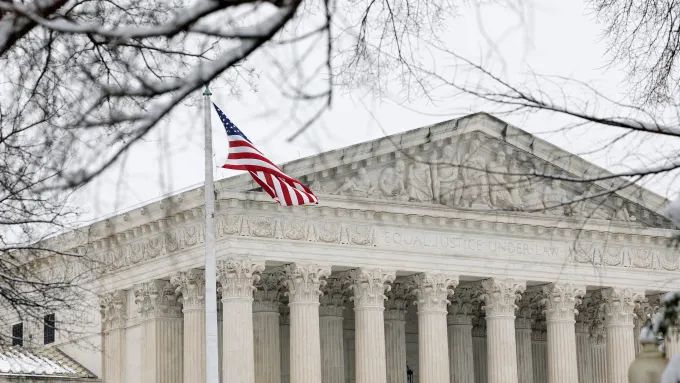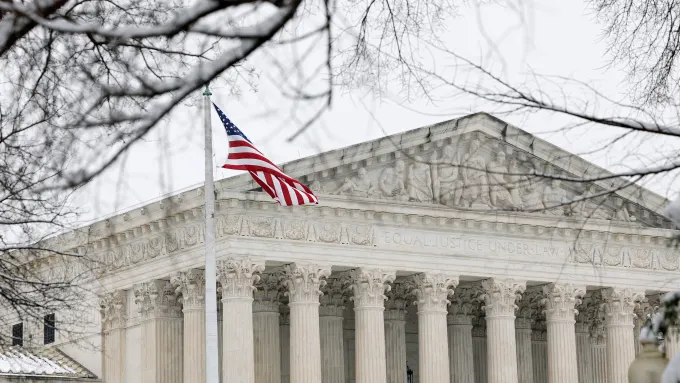
On Wednesday, Chief Justice John Roberts put a midnight deadline that the court had set that would have forced the Trump administration to release $2 billion in frozen foreign aid, a goal that the government has said it cannot achieve. marks the first time President Donald Trump’s efforts to drastically remake the federal government – including with deep cuts across government agencies – have reached the nation’s highest court. The case appears likely to put the justices on a collision course with Trump’s sweeping efforts to consolidate power within the executive branch.
Roberts’ order does not resolve the underlying questions raised by the case. Instead, it issued what is referred to as an “administrative stay” to provide the court with a few days to examine the written arguments in the case. Roberts is the justice designated to handle emergency cases from the federal appeals court in Washington, DC.
The Trump administration raced to the Supreme Court late Wednesday just hours before the midnight deadline and urged the justices to step in immediately – the second time Trump has rushed to the high court since taking office last month. The president’s dismissal of the Office of Special Counsel leadership is the subject of another pending Trump-related case.
In the most recent appeal, billions of dollars in foreign aid from the State Department and the United States Agency for International Development are at issue. In January, Trump froze the aid in an effort to reduce federal spending and bring it more in line with his policy positions. US District Judge Amir Ali, nominated by President Joe Biden, imposed a temporary order requiring that money to flow while he considered the case.
Ali responded by requiring payment by Wednesday at 11:59 p.m., despite the plaintiffs’ claims that the Trump administration had not adequately restored the funding. ET of all foreign aid that had been completed by the time of his order. The courts have been informed by the Trump administration that complying with the judge’s request would take “multiple weeks.”
The district court’s imminent and arbitrary deadline makes full compliance impossible,” acting Solicitor General Sarah Harris, the administration’s top appellate attorney, told the Supreme Court on Wednesday In one notable section of the appeal, the administration told the high court that it “takes seriously its constitutional duty to comply with the orders” of federal courts. That language was clearly a recognition of the blowback Trump and his allies have received in recent weeks as they have flirted with the notion of defying court orders they disagree with, or attempting to impeach the judges who issue them.
“The government,” Harris wrote, “is undertaking substantial efforts to review payment requests and release payments.”
Those explanations have been rejected by the groups that filed the lawsuit, who have suggested that a few political appointees in the administration “are refusing to authorize essentially any payments.” The US Court of Appeals for the DC Circuit stated in its reasoning for rejecting the administration’s attempt to halt the deadline that the enforcement order at issue was not one that could be appealed in the first place, making it possible for the government to run into a significant issue when the court begins to examine the request in greater depth.


